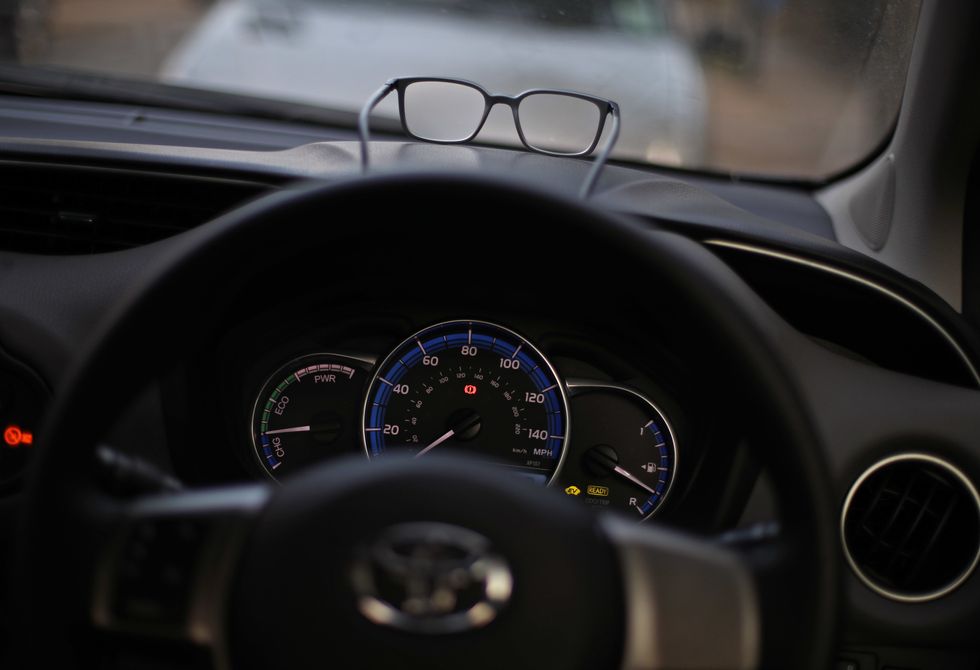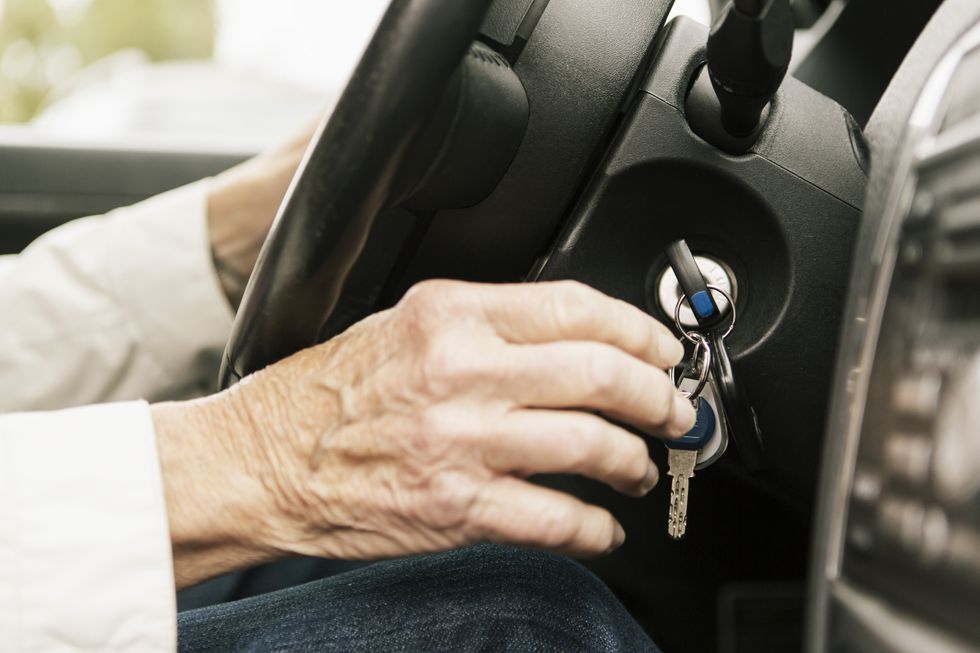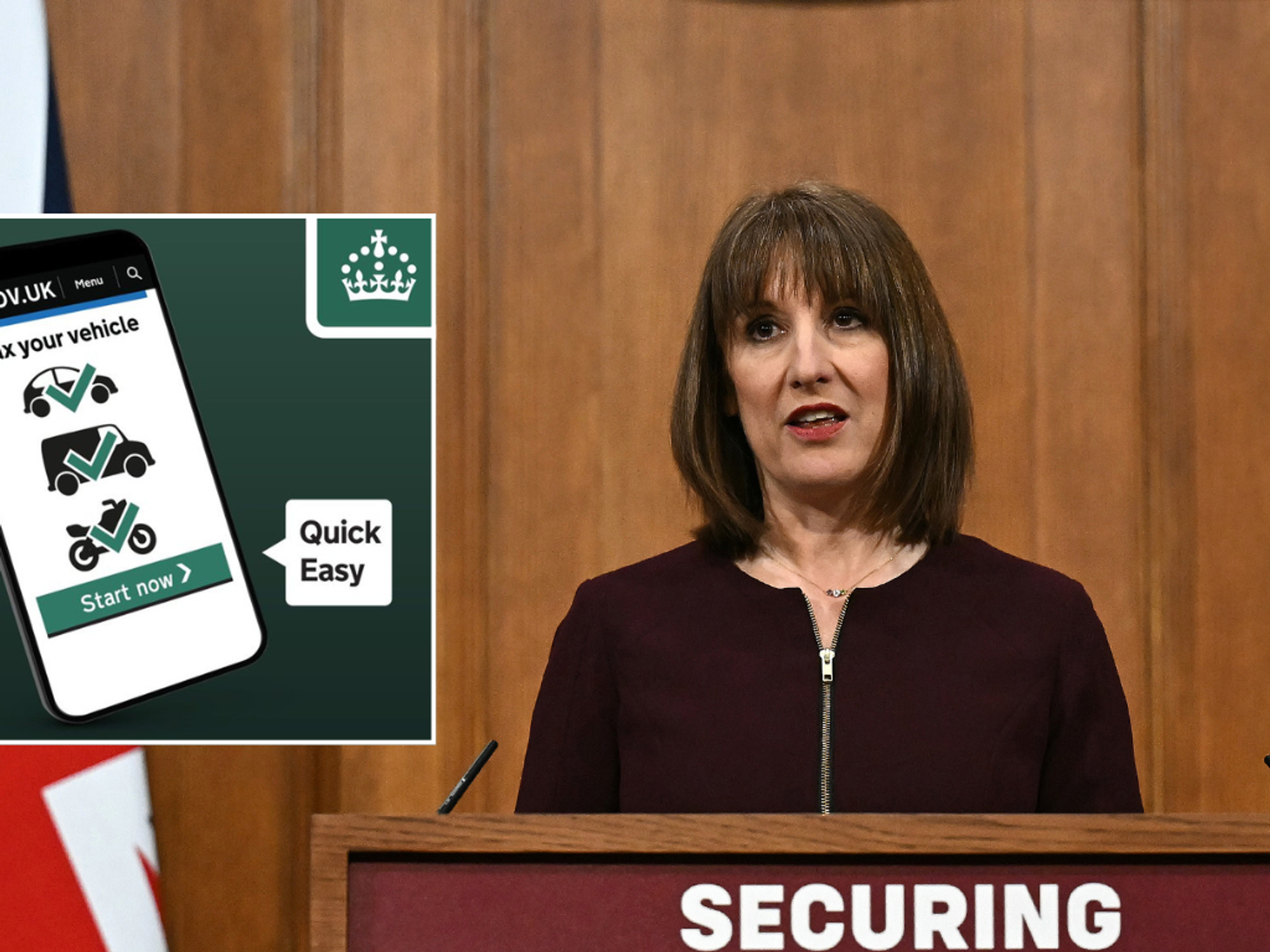Elderly drivers are 12 per cent more likely to be involved in a road incident compared to other age groups
GETTY
A new campaign requires drivers to undergo immediate eyesight checks
Don't Miss
Most Read
Trending on GB News
Experts have warned elderly drivers they could be disqualified from driving if found to have poor eyesight on UK roads.
The harsher penalties form part of a new initiative by the National Police Chief’s Councilwhich allows police officers to conduct immediate eyesight checks by asking drivers to read number plates on the side of the road in Warwickshire.
Drivers who fail these roadside vision tests could face serious consequences, including a £1,000 fine, penalty points, or even disqualification from driving.
The tests are particularly important for older drivers after data found that there was a 12 per cent increase in casualties who were killed or seriously injured in collisions involving at least one older car driver.
Do you have a story you'd like to share? Get in touch by emailingmotoring@gbnews.uk
 The Department for Transport found that older drivers have slower reaction times PA
The Department for Transport found that older drivers have slower reaction times PAStatistics indicate that vision-related issues are particularly problematic during peak driving hours, with most serious casualties involving older drivers occurring between 10am and 4pm.
The initiative aims to ensure all drivers maintain adequate vision standards, regardless of age, to protect both themselves and other road users.
Experts at Age UK emphasised that regular eye tests are crucial for maintaining road safety, with drivers being encouraged to seek immediate attention if they notice any changes in their vision.
Eyesight problems can affect multiple aspects of driving, from clearly seeing hazards ahead to checking side mirrors and blind spots.
Craig Delahaye, Associate Director of Legal Operations at National Accident Helpline, warned that age alone should not determine driving ability.
Speaking previously to GB News, he said: "Drivers shouldn't be written off the roads just because of their age, but they should ensure that they are in fit shape to drive confidently and safely and are always discussing any impairments with their GP to ensure their own safety as well as the safety of those around them."
Recent data from the Department for Transport showed that 53 per cent of serious casualties from older driver collisions occurred on rural roads, compared to 42 per cent for other age groups.
The most common contributory factor in serious collisions involving older drivers was failing to look properly, followed by failing to judge another person's path or speed.
For elderly drivers experiencing vision problems, mobility centres across the UK offer professional assessments and advice about potential car adaptations, Age UK detailed. These centres can evaluate a driver's abilities and recommend solutions that could help them continue driving safely.
The experts highlighted how the DVLA will cover assessment costs if requested after declaring a medical condition, while NHS referrals are typically free at most centres.
Age UK did note that if the assessment shows that a medical condition makes it unsafe for them to drive, the DVLA may take the motorists off the road and tell them to stop driving.
Rhydian Jones, car insurance expert at Confused.com, added: "The introduction of roadside eye tests means drivers could now be asked to read out number plates on the side of the road. This has been put in place to improve road safety and ensure drivers aren't risking their own safety or those around them."
LATEST DEVELOPMENTS:
- M6 closed: Drivers face traffic chaos with roads shut all day after horror 10-vehicle crash and 'significant fuel spill'
- Motorists could see vehicles seized by police for breaking insurance law - 'Devastating consequences'
- DVLA to introduce overhaul of Drivers' Medical service which could impact licences

The DVLA can take away driving licences if someone is found to have poor eyesight
GETTYHe advised drivers not to wait for their scheduled check-ups if they notice changes in their vision. Drivers are encouraged to book an appointment immediately if they experience any deterioration in their eyesight before their next scheduled test.








